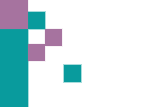 |
||
| | Home | TABLE OF CONTENTS with links | TABLE OF CONTENTS with links health, etc | Table of Apocrypha & articles on religion--by categories | M U S T R E A D I N G S: a guide & links | Counters pastes website information | Science Medical Links | Google's Science Search Engine | Greek Wisdom--from superstition to science | About The Artists | ABOUT JK | LINKS FAVORITES | MORE LINKS | |
|
WEBRINGS--the directory to over 1000 articles by California Skeptics |
|
|
Google's Science Search Engine
|
|
|
Search engines are a very imperfect
consumption of time. Being highly placed is only weakly connected to relevance
and popularity of the site. None of the popular search engines prepare independent
reviews of the sites. However, |
|||||
|
Google introduced its search service for scientific material in mid-November,
and sent yet another shock wave through the walled-up world of science publishing. Google
Scholar looks familiar with its same hallmark spare screen. Instead of spidering the Web for general information, though,
the new technology sifts through specialty literature such as peer-reviewed papers, theses, abstracts and technical reports.
Its goal is to provide a comprehensive list of scientific research, in the form of either full-text stories or abstracts of
articles published in journals only available by paid subscriptions. Scholar's broad reach,
however, underscores a glaring limitation in science publishing. To access an article that appeared in the Journal of Inorganic Biochemistry, for example,
users will still need to visit a research library that subscribed to the publication. Those who live near Harvard University,
though, would be out of luck: the school cancelled its subscription in January as a cost-cutting measure. So did Cornell University,
citing the $2,178-a-year subscription cost. Industry giant Elsevier offers a different story. The company will sell users a copy of the
five-page article -- for $30. And therein lies the rub. The Internet and search technologies
have undermined the arguments by purveyors of specialty journals who say their fees reflect the expenses of the publishing
process. The $7 billion market for science, technical and medical
publishing is dominated by Reed Elsevier, the Dutch company that owns 1,800 titles, according to Morgan Stanley. The company's science
publishing unit, Elsevier, has become the lightning rod for subscriber discontent, especially among campus librarians squeezed
by budget cutting and per-journal subscription costs that range from $500 to $20,000 annually. For years, controversy has raged over the pricey subscriptions that limit the
availability of this information. Over the last year, several campuses have rebelled, canceling dozens of titles in an effort
to more cost-effectively manage their collections. The Association of Research Libraries reports that its members have increased
their serial spending by 227 percent in the last 15 years, but have reduced the number of titles offered. The reduction of these resources, say some, may impede research. "What could
aggravate the serials crisis is when doctoral-level searchers find something relevant to their work and then finds out that
their university no longer subscribes," points out Peter Suber, open-access project director for Public Knowledge in Washington,
D.C. That prompted many groups to push for an "open access" policy towards scientific research, and they see Google Scholar as a major step to help that occur. Proponents believe that using the Internet as a vehicle for distribution has made
the costly subscription fees unnecessary. What's more, online publication opens scholarly research
beyond the ivory towers to a public that has become accustomed to using the Web to delve more deeply into topics of interest.
Until now, the general population hasn't had access to most research, says Michael Eisen, a faculty member in the molecular
and cell biology department at University of California at Berkeley and co-founder of the Public Library of Science, an open-access
organization With Google Scholar, anyone from medical patients to inquisitive readers can follow up on
an interesting article with do-it-yourself online research. For its part, Elsevier
says that, although a well-known brand, Google isn't yet "delivering the tools serious scientists need," according to an email
from Elsevier communications manager Marike Westra. Professional scientists prefer specialist databases and research literature
tools to find relevant information, writes Westra, adding that Elsevier is a participant in Crossref Search, a pilot project that
employs Google technology for free, full-text searches among the journals of 29 publishers. Google isn't the only entity hammering at barriers to information. The National Institutes
of Health (NIH) announced in September that, beginning in 2005, it will request that all funding recipients make their research
results available to the public for free within six months of publication. The idea is that taxpayers ought to have free access
to research for which they partially footed the bill. How big a trove of information will the new NIH policy pry open?
The agency's $28 billion budget contributed to research that produced 65,000 papers in 2003, making it the largest funding
entity for non-classified research in the U.S. government. The controversy is equally intense in Europe, which in addition to being home to Reed Elsevier
is also the headquarters for Springer Science + Business Media, a German company. Last summer, the Science and Technology Committee
of the British House of Commons recommending that publicly funded research be made freely available online. Not all science, technical and medical publishers are created equally, cautions Sally Morris, chief executive officer
of the British-based Association of Learned and Professional Society Publishers (ALPSP), a trade association for non-profit
publishers. Morris says that some presses are being pushed out of the libraries because
it's simply easier to jettison smaller publishers during a budget crunch, even though they cost less than larger journals.
Caught between large commercial publishers and the open-access movement, ALPSP members -- the largest of which owns 100 titles
and the smallest just one -- face a marketing dilemma. To remedy the situation,
the ALPSP is exploring alternative business models for its members. For example, the ALPSP's Learned Journals Collection offers
a variety of packaged, full-text collections from among 430 titles. So far, 30 licenses have been sold. Morris says the ALPSP embraces Google's efforts at lifting the lid on research and plans to meet with company
representatives early next year to discuss collaborative opportunities. In the meantime, librarians are elated over Google Scholar. "It's the sort of tool that libraries have
lusted after for a long time," says Duane Webster, executive director of the Association of Research Libraries in Washington,
D.C. "As a discovery tool that links traditional and digitized resources, it's a big advancement."
|
|||||
|
If there is a divine measurement, it is by the good we do. |
|||||


